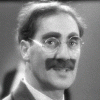REGALIA, n. Distinguishing insignia, jewels and costume of such ancient and honorable orders as Knights of Adam; Visionaries of Detectable Bosh; the Ancient Order of Modern Troglodytes; the League of Holy Humbug; the Golden Phalanx of Phalangers; the Genteel Society of Expurgated Hoodlums; the Mystic Alliances of Georgeous Regalians; Knights and Ladies of the Yellow Dog; the Oriental Order of Sons of the West; the Blatherhood of Insufferable Stuff; Warriors of the Long Bow; Guardians of the Great Horn Spoon; the Band of Brutes; the Impenitent Order of Wife-Beaters; the Sublime Legion of Flamboyant Conspicuants; Worshipers at the Electroplated Shrine; Shining Inaccessibles; Fee-Faw-Fummers of the Inimitable Grip; Jannissaries of the Broad-Blown Peacock; Plumed Increscencies of the Magic Temple; the Grand Cabal of Able-Bodied Sedentarians; Associated Deities of the Butter Trade; the Garden of Galoots; the Affectionate Fraternity of Men Similarly Warted; the Flashing Astonishers; Ladies of Horror; Cooperative Association for Breaking into the Spotlight; Dukes of Eden; Disciples Militant of the Hidden Faith; Knights-Champions of the Domestic Dog; the Holy Gregarians; the Resolute Optimists; the Ancient Sodality of Inhospitable Hogs; Associated Sovereigns of Mendacity; Dukes-Guardian of the Mystic Cess-Pool; the Society for Prevention of Prevalence; Kings of Drink; Polite Federation of Gents-Consequential; the Mysterious Order of the Undecipherable Scroll; Uniformed Rank of Lousy Cats; Monarchs of Worth and Hunger; Sons of the South Star; Prelates of the Tub-and-Sword.
Ambrose Bierce (1842-1914?) American writer and journalist
“Regalia,” The Devil’s Dictionary (1911)
(Source)
Originally published in The Devil's Dictionary [A-Z] as Vol. 7 of his Collected Works.
Quotations about:
club
Note not all quotations have been tagged, so Search may find additional quotes on this topic.
I don’t want to belong to any club that will accept me as a member.
Groucho Marx (1890-1977) American comedian [b. Julius Henry Marx]
Groucho and Me, ch. 26 “Foot in Mouth Disease” (1959)
(Source)
Variant: "I don't want to belong to any club that would have me as a member."
Different confidants of Groucho's attributed this resignation note to different organizations, though most think the resignation from the Friars Club or the Hillcrest Country Club. In his autobiography (the noted source), Grouch referred to it apocryphally as "the Delaney Club."
More discussion of this quotation:
Now when an American has an idea, he directly seeks a second American to share it. If there be three, they elect a president and two secretaries. Given four, they name a keeper of records, and the office is ready for work; five, they convene a general meeting, and the club is fully constituted.
[Or, quand un Américain a une idée, il cherche un second Américain qui la partage. Sont-ils trois, ils élisent un président et deux secrétaires. Quatre, ils nomment un archiviste, et le bureau fonctionne. Cinq, ils se convoquent en assemblée générale, et le club est constitué.]
Jules Verne (1828-1905) French novelist, poet, playwright
From the Earth to the Moon, ch. 1 “The Gun Club” (1865)
(Source)
I think that if the beast who sleeps in man could be held down by threats — any kind of threat, whether of jail or of retribution after death — then the highest emblem of humanity would be the lion tamer in the circus with his whip, not the prophet who sacrificed himself. But don’t you see, this is just the point — what has for centuries raised man above the beast is not the cudgel but an inward music: the irresistible power of unarmed truth, the powerful attraction of its example.
Boris Pasternak (1890-1960) Russian poet, novelist, and literary translator
Doctor Zhivago [До́ктор Жива́го], Part 1, ch. 2 “A Girl from a Different World” [Nikolai] (1955) [tr. Hayward & Harari (1958), US ed.]
(Source)
Alternate translations:I think that if the beast who sleeps in man could be held down by threats -- any kind of threat, whether of jail or of retribution after death -- then the highest emblem of humanity would be the lion tamer in the circus with his whip, not the self-sacrificing preacher. But don’t you see, this is just the point -- what has for centuries raised man above the beast is not the cudgel but an inward music: the irresistible power of unarmed truth, the attraction of its example.
[tr. Hayward & Harari (1958), UK ed.]I think that if the beast who sleeps in man could be held down by threats -- any kind of threat, whether of jail or of retribution after death -- then the highest emblem of humanity would be the lion tamer in the circus with his whip, not the prophet who sacrificed himself. But this is just the point -- what has for centuries raised man above the beast is not the cudgel, but an inward music -- the irresistible power of unarmed truth.
[tr. Hayward & Harrai (1958); edited version quoted by Ronald Reagan, Moscow State University (1988-05-31)]I think that if the beast dormant in man could be stopped by the threat of, whatever, the lockup or requital beyond the grave, the highest emblem of mankind would be a lion tamer with his whip, and not the preacher who sacrifices himself. But the point is precisely this, that for centuries man has been raised above the animals and borne aloft not by the rod, but by music: the irresistibility of the unarmed truth, the attraction of its example.
[tr. Pevear & Volokhonsky (2010), "A Girl from a Different Circle"]




